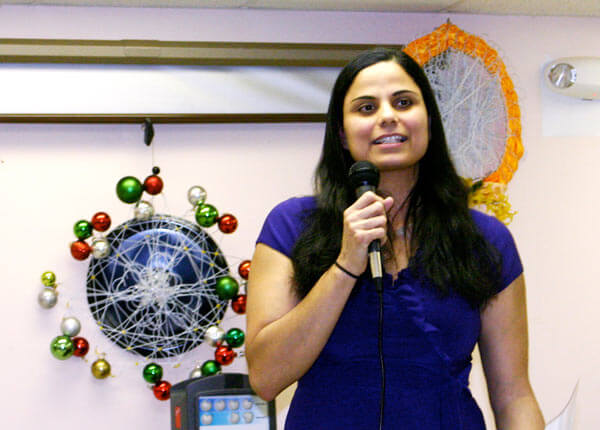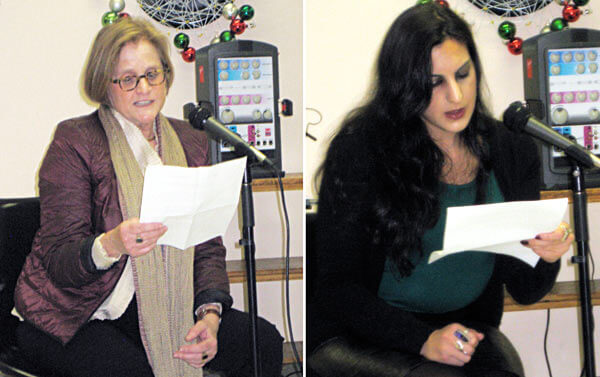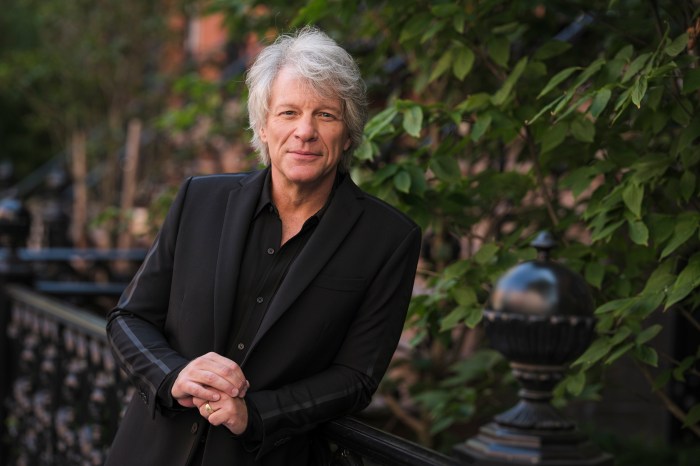By Sarina Trangle
Olivia Kate Cerrone leaned toward the crowd gathered in the Richmond Hill Library’s auditorium and began reading the story of an Afghan woman burned to death for riding a motorcycle with a boy.
“This story remained only as a rumor … until we went on vacation in Daykundi Province,” Cerrone read from “Tahera’s Story” by Basira. “No one was ready to tell me the whole story, so I asked different people and heard different parts of the story.”
“[Tahera’s] mother knew everything and asked her brother for advice,” Cerrone continued. “The brother told her, ‘Why don’t you want to ignite your daughter?’”
A few gasps escaped from the 50 people who gathered in the library Jan. 13 to listen to pieces written by those involved with the Afghan Women’s Writing Project.
The Friends of Richmond Hill Library invited staff and mentors of AWWP, which helps English-speaking women in five Afghan cities write and publish their stories, to showcase poems, essays and stories as part of the Friends’ bimonthly reading series. Between volunteers from the audience such as Cerrone and AWWP members, readers shared nearly 20 pieces, many of which commented on gender relations.
Others, such as the one Cerrone read, described the need to publish such stories.
“They beat her until her body become black, and tied her hands and feet to the columns of the house, threw oil on her, and ignited her,” Cerrone read. “This story cannot remain a rumor.”
Murmurs of approval echoed from the audience.
Masha Hamilton, an author and director of communications and public diplomacy at the U.S. embassy in Afghanistan, said she felt compelled to begin teaching writing classes in Afghanistan after watching a video depicting the killing of Zarmeena, a mother of seven who was accused of beating her husband to death. Because she was unable to uncover much about Zarmeena’s history, Hamilton said she sought to honor her by ensuring other Afghan women can exercise the human right of telling their own stories.
“In the West and in Europe, we would know what her story was,” Hamilton said. “Change is happening, but it’s obviously not immediate.”
Since its 2009 inception, AWWP has grown into an organization that works with about 175 Afghan women of all ages. Authors, reporters and screenwriters volunteer to help edit the women’s work online and in the South Asian country before it is published on AWWP’s blog. The organization has also opened an unmarked Internet café in Kabul, the Afghan capital, where women without access to the Internet can work.
Hamilton said AWWP plans to begin an oral history project with illiterate women, in an effort to expand its reach to those who do not know English or cannot write.
Marzia, an AWWP writer who has accepted a fellowship at the Women’s Campaign Fund in the United States, read an essay about her first menstrual period. Like many who publish with AWWP, Marzia’s byline omits her last name for security reasons. Although her father knows about her writing, Marzia said she has not told her brothers.
“If we do not write about it, if we do not speak about it, there will not be changes,” said Marzia. “Women are heroes who write for this wonderful project.”
The audience treated Marzia like a hero when she read her essay “Enter Through One Door and Leave Through Another,” greeting it with applause.
The piece described menstruation rapidly ushering in adulthood. Marzia said she was no longer allowed to play with dolls and suddenly considered a candidate for marriage. Because Afghans considered women who have their period dirty, she was not permitted to pray and told to avoid going to mosque. If she had to go to mosque, Marzia said she was instructed to enter through one door and leave through another.
“Suddenly, I wasn’t me anymore. I was a dirty person who wasn’t even allowed to pray for help,” she said. “The truth is the period is a biological process created by God to enable women to have children — no more, no less.”
Nanda Surendra, a Richmond Hill resident, said she came across the reading while picking out books at the library. Surendra, an economist and aspiring author, said she became engrossed in the reflections of Afghan women and decided to read a piece aloud.
“I could relate to a lot of it,” she said. “My mother was married at 12 and at 14 had a child.”
Surendra, whose family is from India, said her mother encouraged her to study, particularly after an aunt moved in with them once her husband died.
“My mother told me, ‘No matter what, you are going to go and get an education,’” Surendra said. “‘What if something happened to your husband? What are you going to do, beg for help?’”
Reach reporter Sarina Trangle at 710 260 4546 or by e-mail at strangle@cnglocal.com.

































